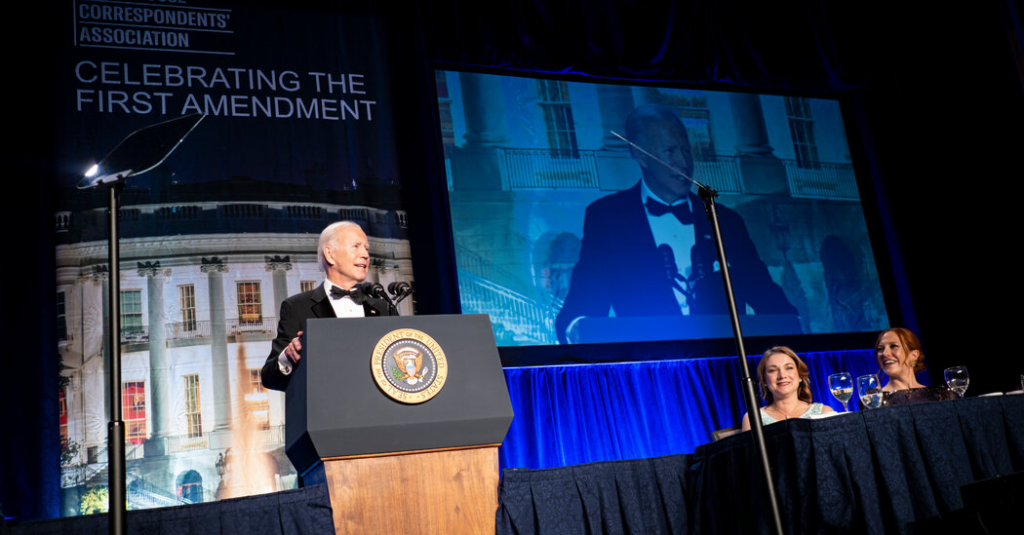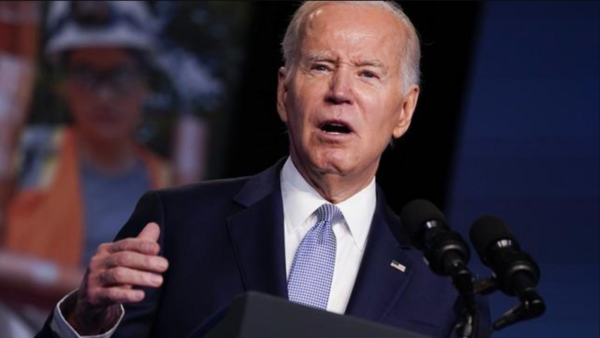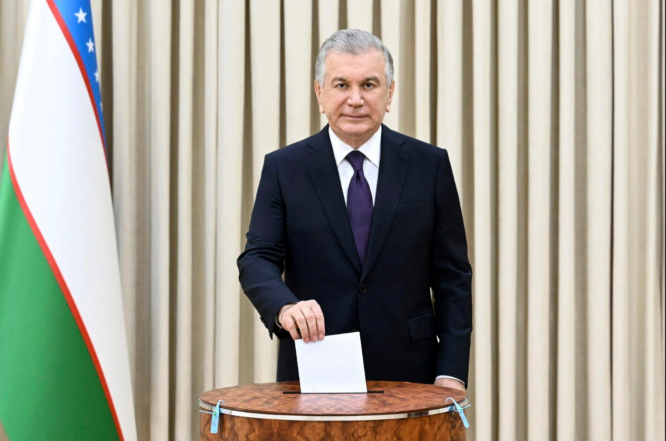In a video this week, President Biden said “freedom” and “personal freedom,” adding “There’s nothing more important.” He presented 2024 as a choice between “more freedom and less freedom.”
Mr. Biden’s emphasis on “freedom” challenged President Donald Trump and other potential Republicans who have emphasized personal liberty to fight government excess. Experts say it is a tried-and-true approach to elicit patriotic feelings among a large span of Americans by promoting policy viewpoints.
The president said “MAGA extremists” are trying to take away “bedrock freedoms,” including “cutting Social Security that you paid for your entire life while cutting taxes for the very wealthy, dictating what health care decisions women can make, banning books and telling people who they can love, all while making it more difficult for you to be able to vote.”
Trump’s campaign emails said “The Left” wants to “take away your guns,” “persecute Christians,” and “transgender cult onto your children.” Last week, Florida Gov. Ron DeSantis denounced “COVID authoritarianism” in other states and pledged to protect educational freedom.
Duke University political science professor John Aldrich said Mr. Biden and Republicans emphasize “freedom from” rather than “freedom for.” They require “freedom from” different things.
Jon Krosnick, a social psychologist and Stanford University professor, said Republicans have long used the word “freedom” and its feelings and associations.

“Republicans have been doing it for a while, and Democrats are kind of catching up now,” Krosnick said.
“Freedom” can also have subtle impacts. Krosnick co-authored a 2021 study on cultural values and language. The researchers found that “freedom” becomes “an important trigger signal in the culture” in countries like the U.S. that routinely cite it—playing the National Anthem at baseball games or repeating the Pledge of Allegiance in school, for example.
Krosnick said that “freedom phrases” help both sides.
“Any use of the term ‘freedom’ is likely to be helpful if you portray a policy as designed to enhance people’s freedom,” Krosnick said.
Krosnick said politicians on both sides use such language because “they kind of have to.”
“If politicians on the right and left want to invoke freedom to support the policies they want to advocate, they’re forced into articulating that differently on different policies,” Krosnick said. “The more voices on both sides can invoke freedom as a justification for what they’re doing, the more successful they will be in persuading and activating people to be sympathetic to their agenda.”

Aldrich gave two reasons Mr. Biden and Republicans may be focusing on policies Americans want “freedom from” rather than “freedom for.”
“One is to represent our side as individuals who currently suffer under one form of overwhelming power or another. “Easier to say, ‘Feel for those who are currently suffering’ than to imagine some future timer,” Aldrich remarked. “The second is that it portrays a specific opposition, making it easier to rally troops to defeat them.”
“A different world is where one can rally folks around a plan to make things better in a rosier future,” Aldrich said. “But the nature of appealing for people to do things they do not want to makes it much easier to have an enemy in our midst.”




